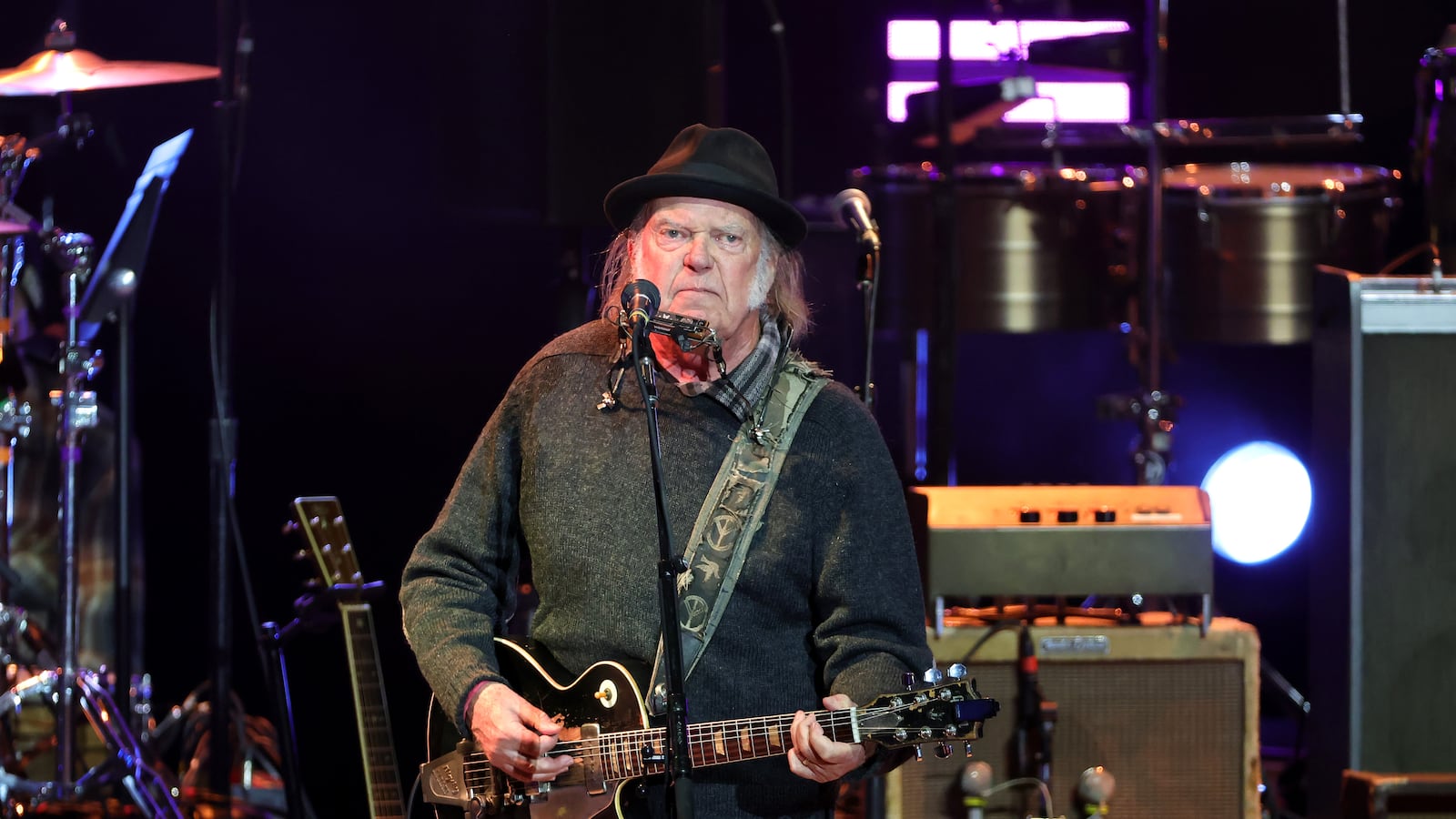Neil Young's "Big Crime": A Protest Anthem for the Trump Era
In "Big Crime," Neil Young masterfully combines protest with rock, challenging the Trump era with unflinching authenticity.

In a digital age where rebellion is often marketed rather than felt, Neil Young once again rises above the din with his latest protest anthem, "Big Crime." At a time when music frequently masks its messages in palatable ambiguity, Young's newfound track stands as a clarion call, unflinchingly directed at the political climate surrounding the Trump administration.
The Defiant Legacy
"Big Crime" emerged from Young's raw performance during a Chicago soundcheck, a moment now amplified across streaming platforms. Unlike the algorithm-driven melodies populating today's charts, Young’s creation is laden with the substance of old-school defiance, blending the countercultural zeal of the 1960s with present-day urgency.

The song's video is a visual testament to Young’s enduring belief in music as a force for change—stripped down to the essentials, focusing purely on the message. This approach reclaims what many modern songs have lost: the ability to challenge and provoke.
Directness Over Complexity
In "Big Crime," Young wields his words with deliberate simplicity, favoring direct communication over poetic intricacy. The lyrics unapologetically highlight the militaristic overtones of Trump's governance, calling for an end to what Young describes as the encroaching "fascist elements." For Young, this is not a time for subtlety; it's a time for clarity.

While some may view this shift as a departure from Young's more layered lyrical history, it is, in truth, a strategic choice. In bypassing convoluted metaphor, Young ensures the message is unmistakably heard, echoing the urgency of the times. This is not just a song—it's a rallying cry.
A Call To Authenticity
To engage with "Big Crime" is to participate in a movement against the complacency that often characterizes modern pop culture. Young’s upcoming tour, stopping at legendary locations such as the Hollywood Bowl and the historic Farm Aid 40, promises to be more than a mere concert; it’s an invitation to partake in a continuing legacy of activism.

In supporting Young, fans connect with more than music—they connect with a cause. "Big Crime" is a reminder that in a world often anesthetized by the superficial, genuine art continues to matter. It serves as a beacon for those who long for the days when music was both a reflection of society and a catalyst for change.
Reclaiming the Power of Rock
Neil Young, with his unyielding voice, reestablishes what rock music can and should be—a fearless expression of truth and a critique of power. By taking aim at the political sphere without flinching, Young reinvigorates a genre too often softened by commercial interests.
In a landscape where music is frequently more about packaging than message, Young's "Big Crime" stands out as a raw, unwavering testament to the enduring power of authentic artistry. It’s a reaffirmation that, even amidst digital distractions, music has the capacity to confront and inspire transformative change. Neil Young remains a stalwart guardian of this vital legacy, continuing to challenge the status quo with both courage and conviction.




